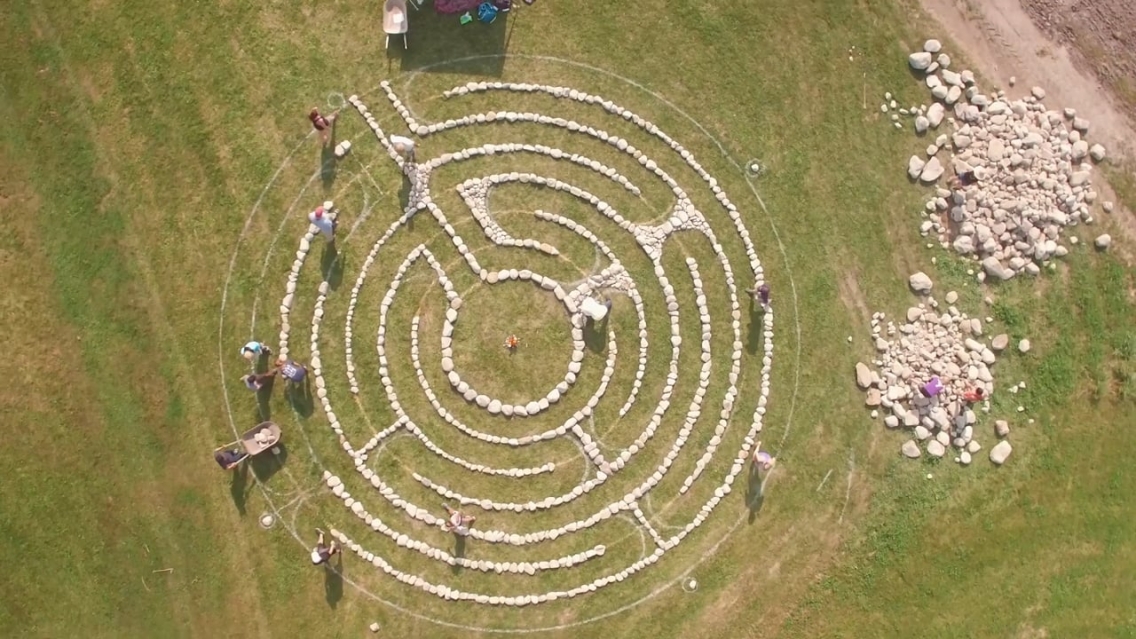Scott Center Sees Increase in Students Seeking Spiritual, Religious Experiences (video)
MIDDLEBURY, Vt. – Last spring, fourteen Middlebury College students representing nine faiths wrapped up a promising experiment as the first residents of the College’s new MOSAIC Interfaith House. It’s one of the latest initiatives reflecting a growing trend toward religious diversity among students and their interest in spirituality and religion, according to staff members.
“For decades these aspects of student life have been quietly vital at Middlebury,” said Mark Orten, Middlebury’s dean for spiritual and religious life, “but over the last few years, students have expressed a greater desire to deepen their own faiths and seek out other students who want to explore spirituality.
“Students also want to know more about the faiths of other students,” said Orten, “so there is a new emphasis on interfaith experiences, including those of ‘no faith’ or other worldviews such as atheism and secular humanism.”
Orten is pleased with the Interfaith House’s successful first year and the fact that eight or nine faiths were represented among the students who lived there.The residents had all applied to live in the house and agreed to attend weekly meetings to discuss their experiences.
“Only a handful of colleges and universities in the country offer something similar to the Interfaith House,” said Orten, whose office and the offices of his colleagues are located next door in Middlebury’s Scott Center for Spiritual and Religious Life.
“It’s a great way to show that people from totally different backgrounds, different countries, different religions, and different value systems can live together and get along,” said Toni Cross ’18, who lived in the Interfaith House during her senior year.
New or growing student initiatives also include Prajna, a student meditation organization founded more than 15 years ago that has grown within the past year from weekly gatherings of five-six students to more than 30 students. Prajna’s leaders may have to look for a new place to meet this fall since its current location in the Scott Center is no longer large enough.
Tuesday Tea Time, which started last year, is an unstructured, completely social gathering that takes place weekly from 4:30-5:30 pm at the Scott Center and typically draws about 15 students. Conversational topics range from musical tastes and weekend adventures to hobbies and plans for the future. The event has proven so popular that sometimes staff have to politely nudge students out the door when it’s over so they can leave for the day.
Led by Orten, Wisdom Wednesdays – also returning for a second year – offer a half-hour midweek opportunity for students, faculty, and staff to share poetry, literature, music, and silence in Mead Chapel.
New meetings and groups have led to a proliferation of locations on campus beyond the Scott Center that are devoted to meditation and worship. These now include a room on the second floor of the Davis Family Library, and spaces in Munroe, Anderson Freeman Center, McCullough Student Center, and the Labyrinth at the Knoll (the College Garden).
Equally important to the support they give to student groups and initiatives, says Orten, is the expanding role that he and his colleagues play in campus dialogue on topics of race, sexuality, and other issues. Recently the Scott Center has also worked on the College’s effort to educate faculty, staff, and students about restorative practices.
“The liberal arts calls for students to be knowledgeable about the core convictions and values of others if they are going to meet today’s pressing challenges,” said Orten. “The Scott Center can contribute to this essential aspect of our students’ education.”


